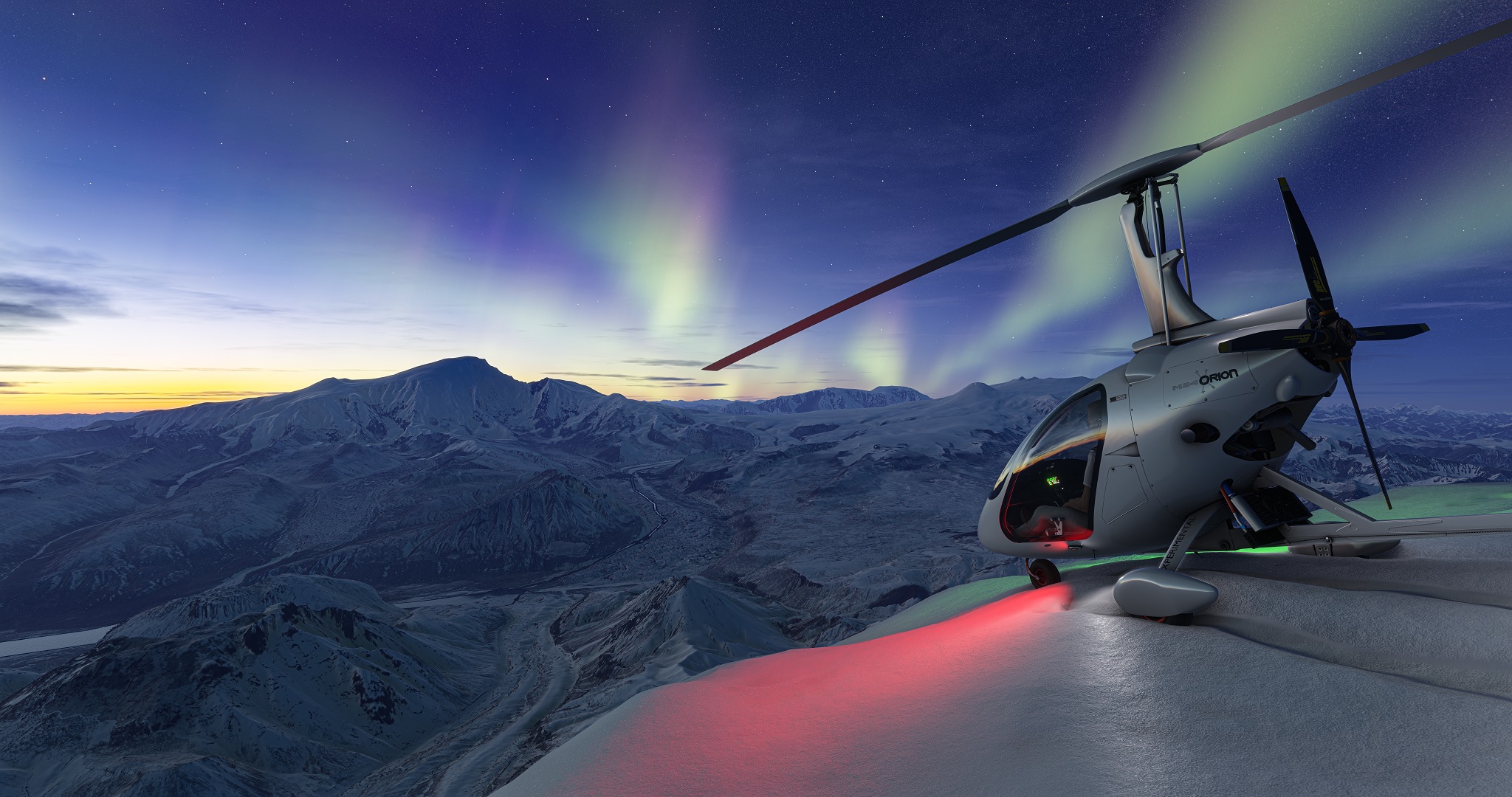
"Wish fulfillment of the community."
So says Jorg Neumann, head of Microsoft Flight Simulator at Xbox Game Studios Global Publishing, when I asked him what the team's main goals were in crafting the upcoming Microsoft Flight Simulator 2024.
"We have all kinds of listening systems. What do they want? What is missing? So we listen really carefully and we try to prioritize. They actually prioritize for us," he says, pointing to the community wishlist. "This is a pursuit that people have in life. We need to listen carefully to what they want, and then we need to give it to them."
Fulfilling community requests is at the core of everything Neumann and others showed me at a hands-on preview event for Microsoft Flight Simulator 2024, where I got to play the sim for a couple of hours as well as talk to team members across Xbox, Asobo, and other external partners.
While some questions remain, I've come away impressed at the technological leap this game represents, with a bucket of features laser-focused on the different groups that make up Flight Simulator's audience, newcomers and hardcore alike.
Microsoft Flight Simulator 2024 is a global collaboration
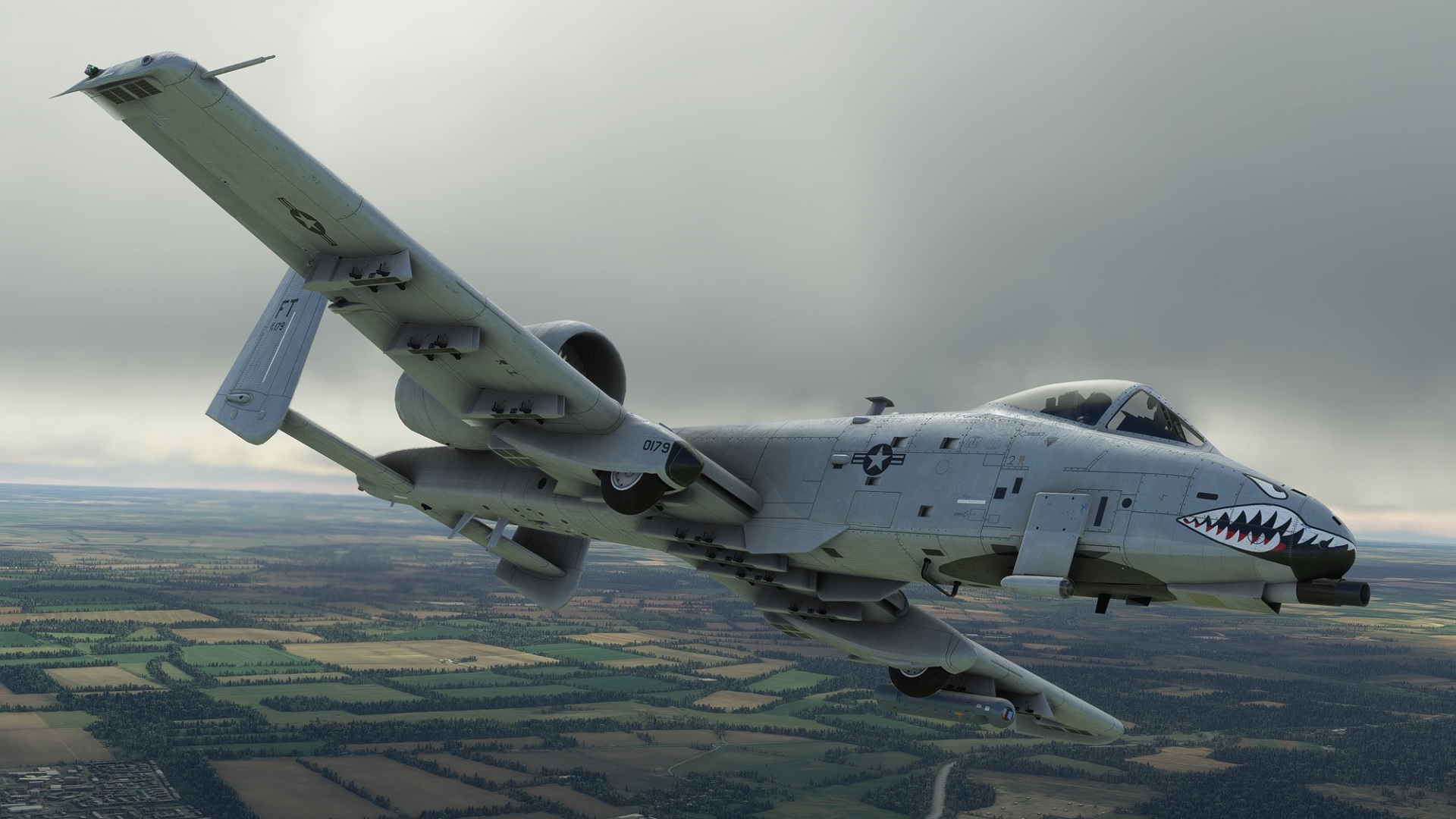
Before I even got hands-on time with the game, it's clear that Microsoft Flight Simulator 2024 is a much bigger effort than its predecessor. Microsoft Flight Simulator 2020 was made by 120 people, with 100 staff at Asobo and another 20 at Microsoft, a team that Neumann says did a "great job" together, as the game "exceeded all expectations."
For pushing further and addressing core feedback around having more to do? "No way," would that team be enough, with the team firmly realizing in 2022 that an entirely new client would be needed in order to achieve its vision for flight simulation.
Now, for Microsoft Flight Simulator 2024, Asobo's team has over 200 staff, but the studio and the team at Xbox work with hundreds of additional developers across 30 external partners, with different teams that specialize in particular aspects of the sim. Neumann proudly notes that there's a partner on every continent except Antarctica.
"We're working on that," he adds with a laugh. "I met more and more people, they worked in the in the industry and in the community, and I basically said 'We will never be able to match this, nor should we. Let's just collaborate.'"
The fruits of that collaboration can already be seen ahead of the new sim's launch. Not a single plane has been made by Asobo since 2021, with the studio focused entirely on updating the platform.
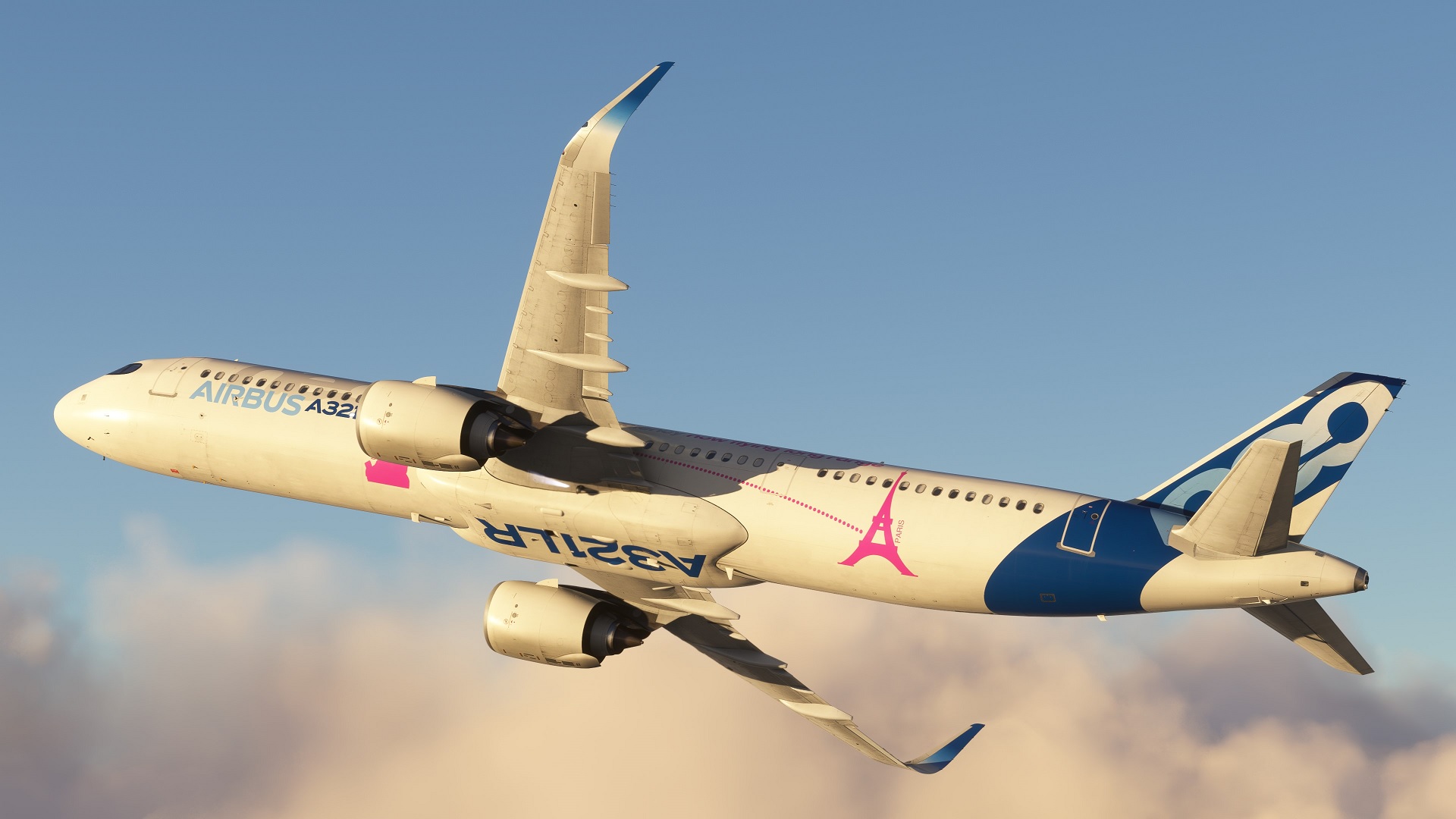
"Because I'm at Microsoft, I talk to Asobo maybe 20% of my time. 80% is spent with the Coast Guard or search and rescue operations or some firefighting organizations or some of the creators that add to the substance of what the sim is," Neumann says. "It's for the community, with the community."
When I asked him how it's possible to keep hundreds of people across dozens of timezones coordinated on the same project, he's candid with his response. "I think you have to be honest and trusting. You need to not treat them as business entities, but as partners."
"I'm a firm believer that mankind can achieve incredible things when they work together and I think that's what we're getting here. Slowly but surely. You know, the the walls break down. Companies that thought about themselves as competitors now think of themselves as partners. They help each other."
"It's been fantastic," says Brandon Yaeger, founder and project lead at Got Friends. "It hasn't been like a 'We need you to do this, make this aircraft,' it's very receptive on both sides. We give them ideas, they give us ideas, they're very interested in our development workflow."
"For us, it was exciting to be able to get better access to sort of the underlying systems and make some changes to the aircraft that we couldn't make from the outside," says Christopher Burnett, co-founder of Working Title Simulations, who notes that they've been able to build avionics systems and share them with other developers thanks to having key source code.
"Just having the muscle of Microsoft for some of the stuff we do. Like right now, working on the Dreamlifter, I get to talk to the chief pilot from Boieng who was part of the design of that aircraft. Now I get all the information I need, all the performance data I need," he explains.
Both Burnett and Yaeger point out that having come from the community before collaborating on Microsoft Flight Simulator 2024, they have a unique perspective in sharing feedback, which Neumann is always receptive to.
Microsoft Flight Simulator 2024 is a huge technological leap
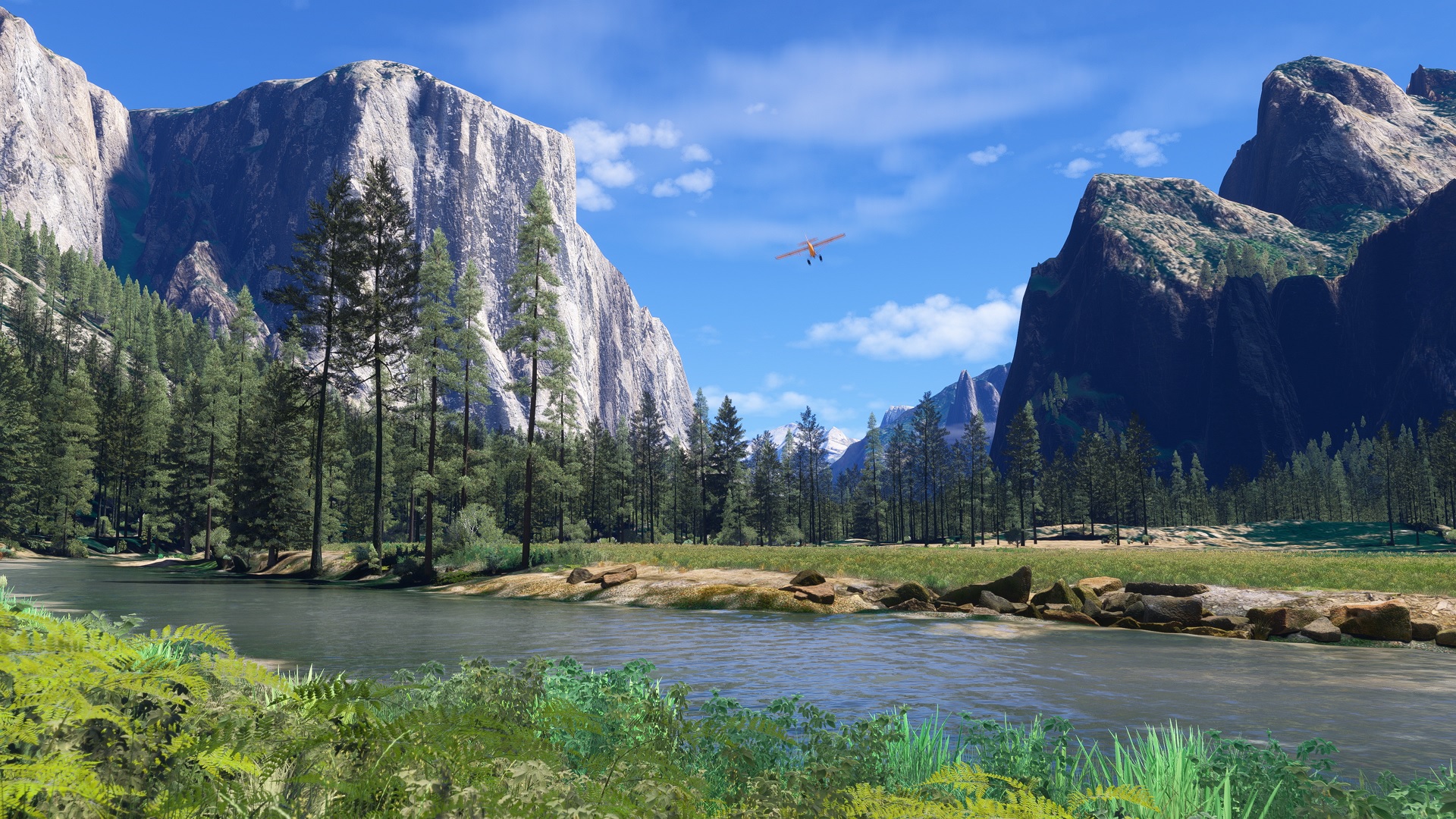
Microsoft Flight Simulator 2024 sports a number of technical improvements over its predecessor. One of the biggest improvements? Reducing the size of the client, with a focus on keeping it thin, with reduced installation time. While Microsoft Flight Simulator 2020 demanded over 150GB free (before any add-ons were considered), Microsoft Flight Simulator 2024 is set to weigh in around 23GB at launch.
Other massive improvements come in the ground terrain. While Microsoft Flight Simulator 2020 only had grass, tarmac, and earth, the 2024 sim will instead realistically simulate ground terrain with stunning clarity, allowing players to land and get out of their craft while taking pictures. According to Asobo Studio CEO and co-founder Sebastian Wloch, ensuring good performance was a big challenge, especially with the raw increase in terrain detail the team was hoping to accomplish.
"So here we use machine learning," he says. "We trained the AI with real photos and aerial photos to recognize — and basically other data like you know, altitude, as much information as possible — to try to guess 'Okay, is there rocks? Are there pebbles? Is it sand? Is it earth?' to find the right type of ground."
Further optimizations were required, especially at the airports, with tons of detail on the tarmac and surrounding the runways. Wloch notes that it initially took a long time to load, and the team has improved it "by thousands of times" until it's no longer a problem.
"I mean, it's not possible to make a rescue mission where you need to land in a remote place if you do not improve the rendering on the ground," says David Dedeine, chief creative officer at Asobo.
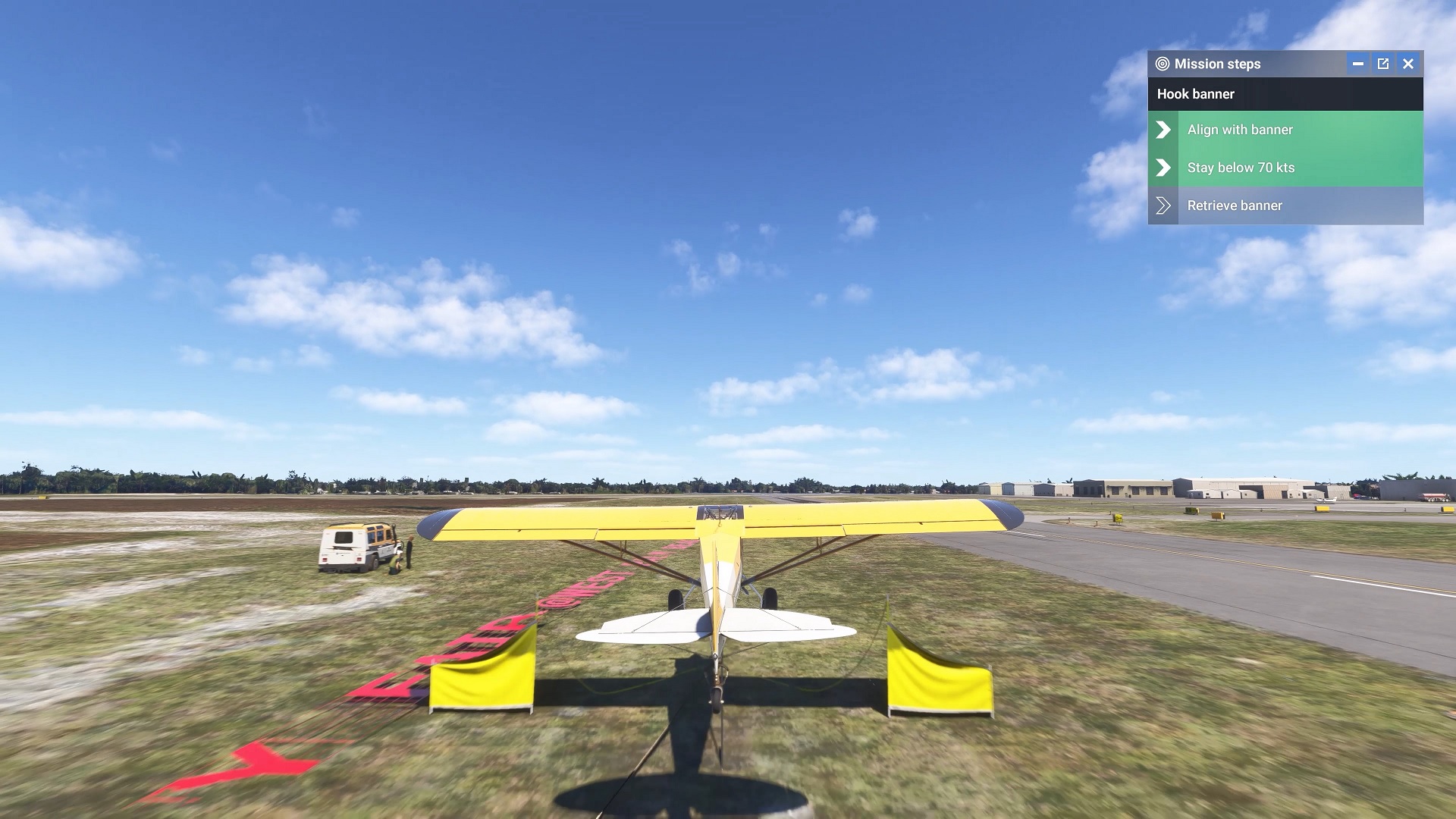
Wloch shared the team had to be extremely careful when making improvements to different features, as even the tiniest performance cost per airplane could add up and become too taxing at the busier airports. This also meant reusing existing technology where it was viable. With firefighting added as an activity, the team opted to use a version of the cloud system, which worked realistically with lighting tech.
Backward compatibility is important, with the team noting that the vast majority of existing add-ons for Microsoft Flight Simulator 2020 will be compatible with the new client. I asked Dedeine if there were any specific examples of an add-on that wouldn't work with Microsoft Flight Simulator 2024 at launch.
He was unable to remember a named example at the moment, but emphasized how it wouldn't be a problem for most of the available add-ons, and that as soon as a third-party developer adds requested features to their planes, they can port their aircraft into the Career mode. This option will be available even if the plane hasn't been visually improved from the version that was present in the prior game.
Dedeine goes on to explain that the Career mode was actually built with this in mind, and the types of missions available can easily be adjusted to include relevant aircraft that the community bring into Microsoft Flight Simulator 2024 through add-ons.
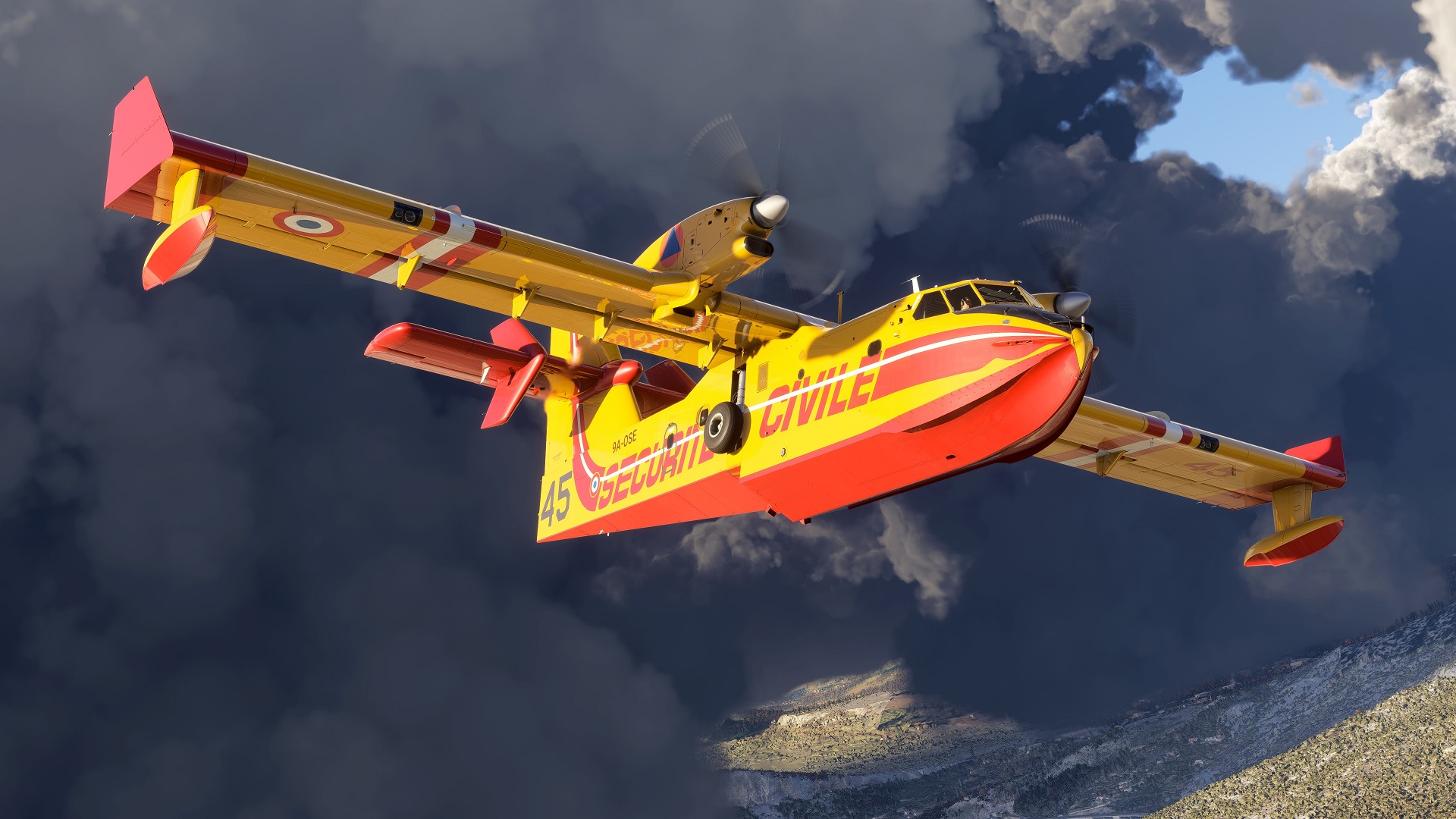
Another improvement players can look forward is an overall higher level of interactivity for the fleet of aircraft in the game. While many planes drew criticism at the launch of Microsoft Flight Simulator 2020, as a general rule, the standards are higher for this upcoming release.
"Over time I think we improved it a lot, so it's become much better. It's much better right now," Dedeine says. "I would say that now most of the lineup is at this level, and I would even say that a big part of the lineup is now even further thanks to Working Title."
Burnett also notes that there's a number of more advanced systems in Microsoft Flight Simulator 2024 that allows the teams to craft more complicated and true-to-life avionics.
Microsoft Flight Simulator 2020 had something of a staggered release, first launching for PC in 2020 before Xbox Series X|S versions arrived the next year. Microsoft Flight Simulator 2024 eschews this strategy, and is instead launching across Xbox and PC at the same time. According to Wloch, this hasn't been a problem thanks to the team's learnings from the first game.
"The initial launch was much harder, because the initial PC 2020 version was a bit optimized for PC, but not that much. I mean, we did a lot of optimization post-launch," he says. "Now, everything we do, we know we have a console version."
Wloch adds that the focus on efficiency for a console version is beneficial for players on PC, as the team always has to keep that efficiency in mind.
"Why is this 4000 times more detail? It's 64-by-64, but that's 4000. That's the thing. If you double detail, you pay four times the price," he explains.
Microsoft Flight Simulator 2024 introduces big new modes
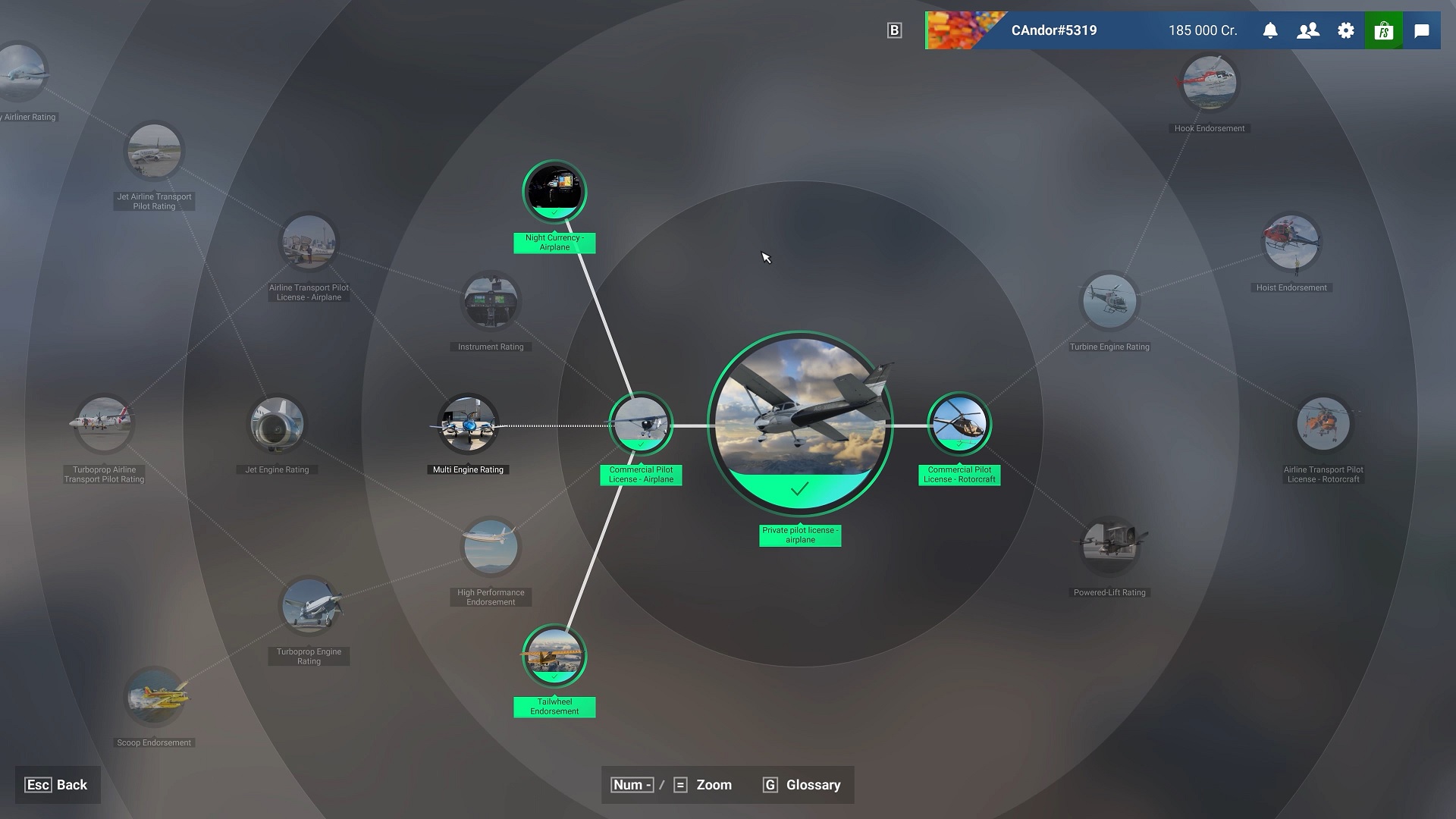
One of the big standouts for Microsoft Flight Simulator 2024 is the career mode, which will see players embarking on a campaign of sorts. They'll create their pilot and start at an airport of their choosing around the world. From there, they can fulfill different missions and undertake exams, which in turn lead to the ability to take on more complicated missions. Asobo has worked to make the progression here feel good no matter how familiar a player is with flight simulators.
"It's easier to make a great career system that will satisfy a [specific] type of audience, but making it in a way that will, we hope, check the boxes from the super-hardcore simmers to everything in-between, to the digital tourists — as Jorg loves to present them — it's a different sort of approach," says Dedeine.
You can really come as you are. You can really arrive as a beginner and the career will take you by the hand.
David Dedeine, CCO of Asobo Studio
"You can really come as you are. You can really arrive as a beginner and the career will take you by the hand, and you will soon realize that you've learned way more than you would have expected at the beginning," he says, adding that the process will naturally go much faster for a more experienced player.
This extends to the range of options that's available when flying. Players can skip the pre-flight setup if they find it boring or confusing, but it's there specifically for the veterans that want to set up their routes and complete their flight plans in a realistic manner.
Over time, the Career mode will eventually allow a player to start their own business, which carries a hefty weight to it. You'll acquire your own aircraft and balance your expenses, so if an aircraft is damaged, you've got to pay for it.
"You know when you're in cruise, you're not really supposed to go full throttle. So these type of things will damage the engine, and at some point you will pay the bill," Dedeine adds.
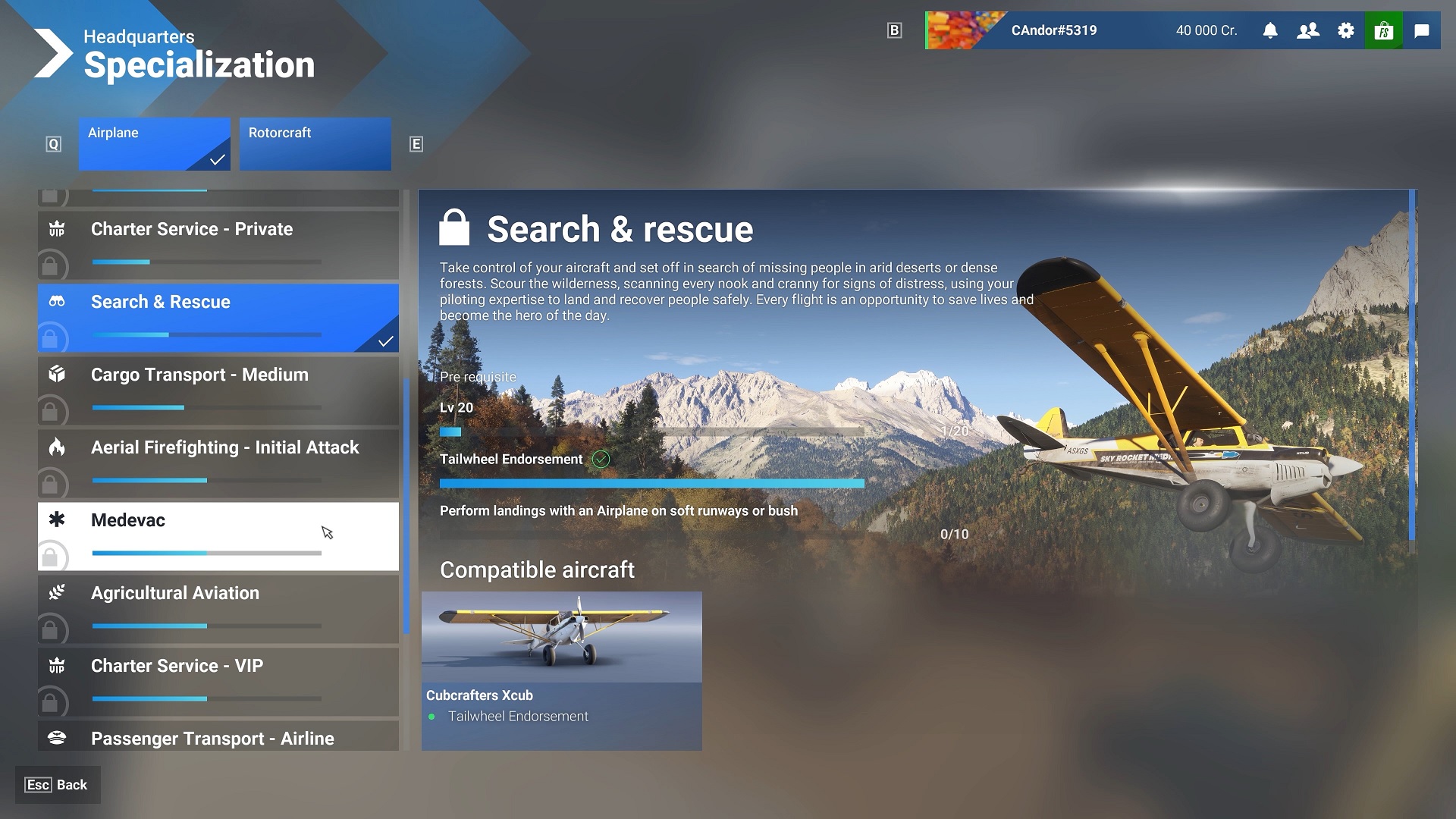
Another big part of Microsoft Flight Simulator 2024 is the Challenge League. This is a rotating list of bite-sized activities, tasking players with merely setting a record time in a particular setting, such as racing an F-18 over the Grand Canyon. While there's a decent mix of activities waiting for players at launch, this list could grow over time.
"There's plenty of prototypes of different activities that we have," says Dedeine, noting that some had to be postponed or put on ice just because of the realities of game development. "We have tons of things in the pocket that we'll probably ship later. We'll see when."
Finally, there's the World Photographer mode. This is all about sightseeing, letting players focus on capturing the beauty of planet Earth and snapping shots of photos of cities and natural wonders around the world. The world is appropriately populated by animals, which is thanks to Neumann contacting the team behind Planet Zoo.
These animals will be realistically populated based on available real-world data, as Neumann is firm on wanting it to be as authentic as possible. There won't just be millions of tigers roaming Asia. Instead, the first time a player captures a shot of one, it'll be a true-to-life rarity.
Playing Microsoft Flight Simulator 2024 for the first time
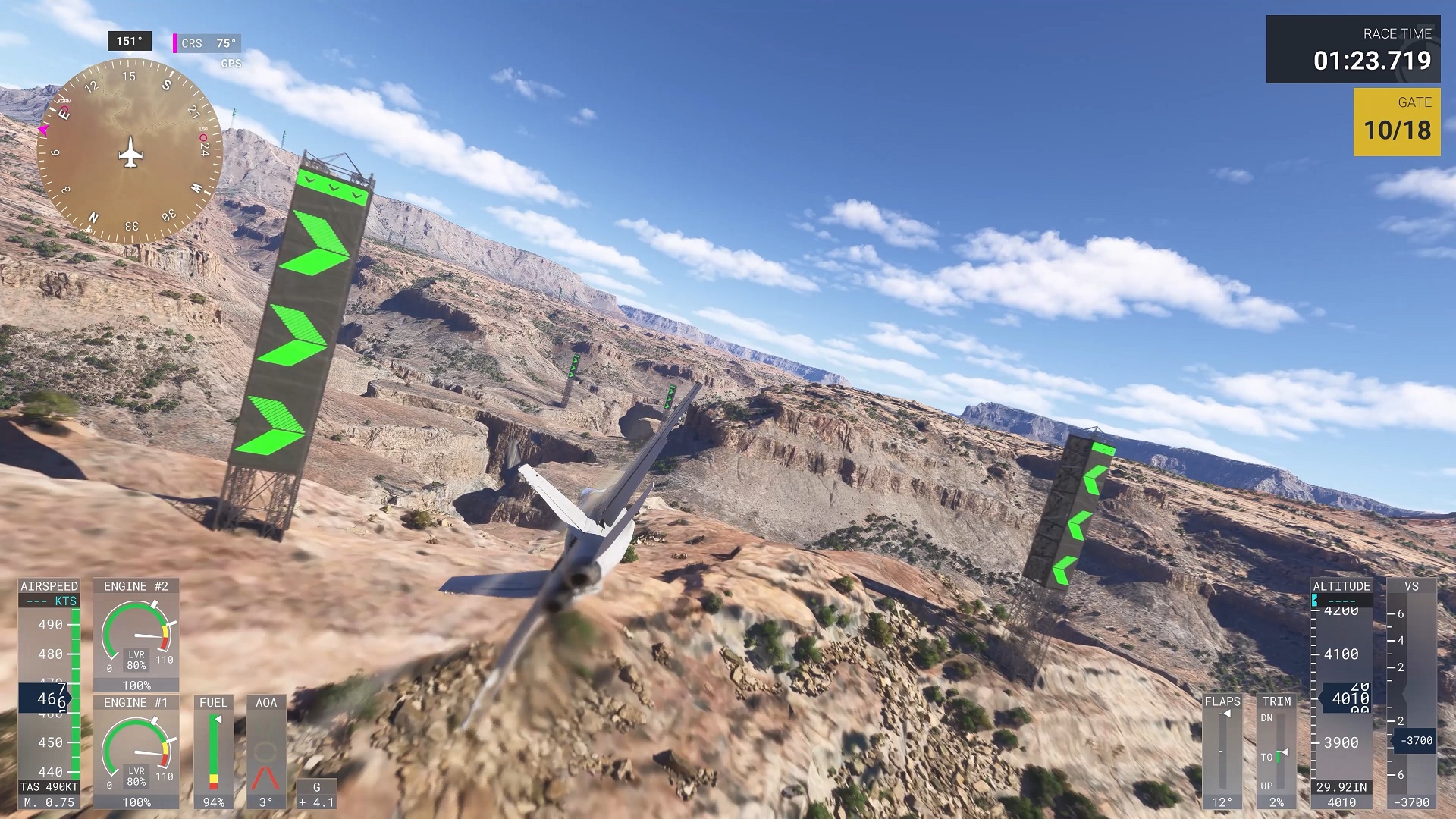
As someone that's a bit new to flight simulators, I first opted to go through some of the flight training modules in my hands-on time, getting a grasp on the controls and how to keep an aircraft steady. These were fairly well-paced, giving a good overview of everything you need to know over the course of an hour. After that, I dove into the available activities.
Flying an F-18 Hornet over the Grand Canyon was exhilarating, and it's a lot harder than it looks, requiring extreme precision and careful management on the throttle in order to make some sharp turns. I probably crashed a dozen times before I was able to make it through.
I also flew an A-10 Warthog over the Blue Ridge Mountains. This was decidedly easier, even relaxing, despite being a timed challenge. Seeing my northern neighbors rendered in gorgeous fashion as I soared overhead was fantastic, and I found myself coming back to this multiple times just to experience it over and over again.
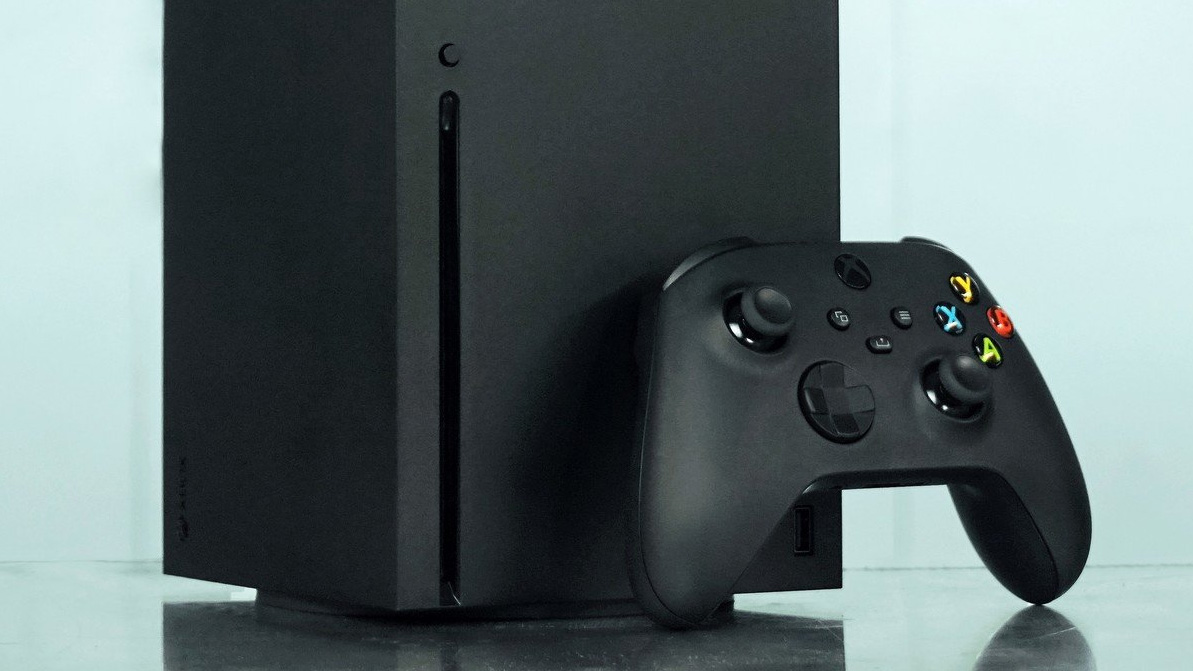
- Best Xbox headsets to get in 2024
- Best upcoming Xbox games
- Best gaming laptops in 2024
- Best Xbox controller deals
- Best Xbox hard drives
- Best Xbox SSDs
I did encounter a couple of bugs during my time hands-on, as did the other attendees at the preview. Initially, trying to interact with the character creator caused the game to crash, while booting up into most of the different modes would cause a red "error" figure to be displayed in the cockpit. It was certainly funny, but not optimal.
To the team's credit, they were rapidly able to figure out what was causing the issue, so later on in my time I was able to build a custom pilot and soar through the skies without a red error next to me.
Hopefully, the full release won't see these problems pop back up. Even now, I'm fairly wet behind the ears when it comes to flight simulators, but everything I played was fun and challenging, and the global collaboration required to create this experience is genuinely awing. I'll certainly be giving these flights another go when the game launches later this year.
Microsoft Flight Simulator 2024 is slated to arrive on Xbox Series X|S and Windows PC on Nov. 19, 2024. Like other Xbox first-party games, it's included day one in Xbox Game Pass Ultimate and PC Game Pass.







